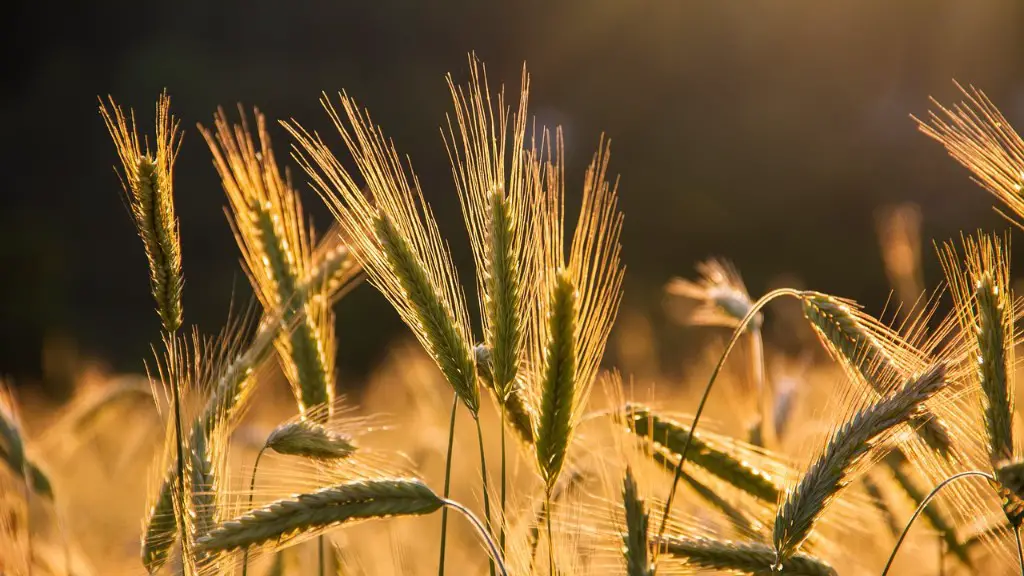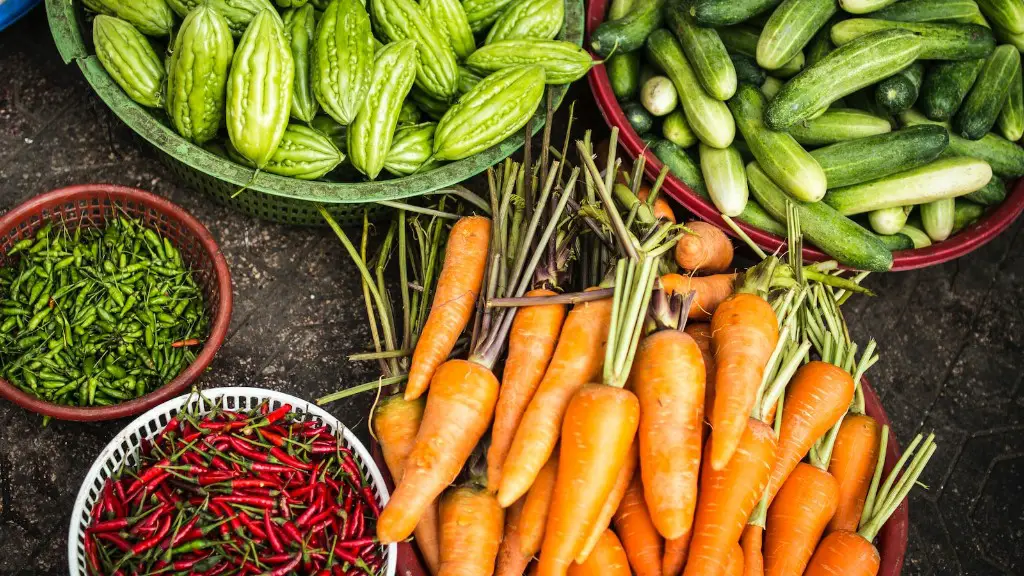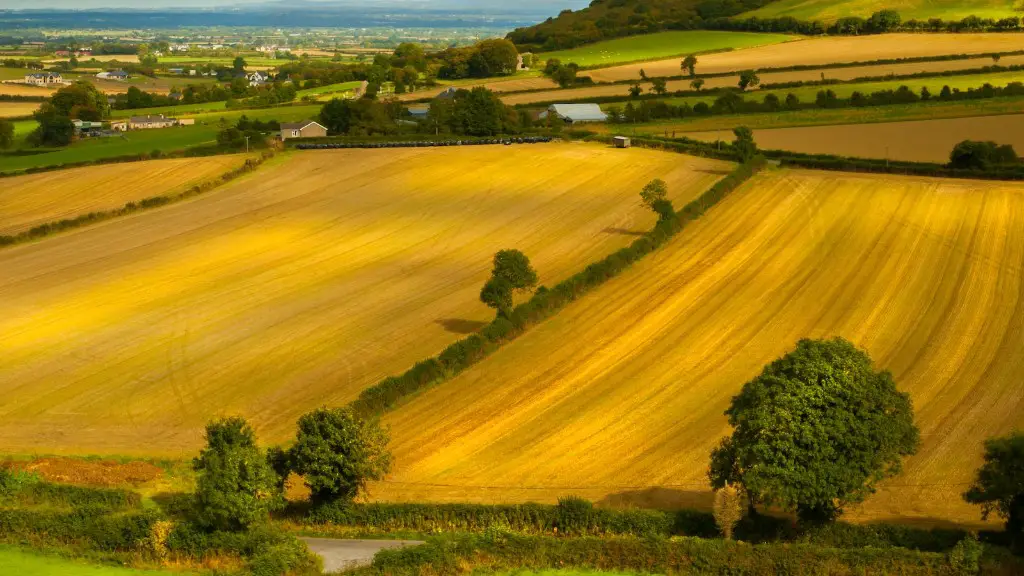Sustainable agriculture is essential for the survival of modern society; it provides us with food, fiber and natural resources and has a key role to play in preserving our environment for the future. This article will explain the importance of sustainable agriculture, its challenges and potential strategies for achieving this goal.
Humans rely heavily on agriculture for survival and, as the population continues to increase and climate change exacerbates environmental issues, it is more important now than ever before to ensure that agriculture is sustainable. This means that agricultural practices must be conducted in ways that can ensure long-term levels of productivity, while also maintaining the integrity of the environment in the process.
The use of sustainable agriculture practices helps to improve soil fertility and fertility, reduce wastewater runoff and sedimentation, conserve wildlife and plant habitat, reduce pesticide use and other environmentally threatening practices, minimize land disturbance, conserve water, and decrease the need for nutrient applications. All of these advantages make sustainable agriculture valuable to the rural and urban environments where it is carried out.
Moreover, sustainable agriculture practices are also key in helping to reduce the dependence of farmers on synthetic fertilizers and other inputs, preserving the productivity of the land and improving the quality of the food that is produced. This is especially important in parts of the world that are prone to famine or other environmental issues such as drought, as it provides them with an opportunity to produce food that is nutritious and that can support their livelihoods.
Unfortunately, there are many challenges associated with sustainable agriculture. These include finding reliable sources of water and nutrient inputs, managing pests and diseases, increasing soil fertility, and finding ways to keep crop yields up while also reducing wastage and pollution.
In order to achieve sustainability in agriculture, it is important to develop a holistic approach that takes into account the needs of farmers, the environment, and the local economy. This can involve practices such as crop rotation, soil regeneration, integrated pest management, and the use of renewable energy sources. By promoting sustainable agriculture practices, farmers and the rural and urban environment can benefit from increased production with fewer inputs and wasted resources.
Furthermore, it is important to educate people about the importance of sustainable agriculture and why it is necessary for our sustain our livelihoods in the future. Awareness of sustainable agriculture needs to spread to both farmers and the general public in order for it to become an integral part of our culture.
Crop Rotation and Plant Nutrition
Crop rotation is a key strategy for achieving sustainable agriculture. This practice involves rotating different crops in and out of the same soil year-over-year, in order to provide new sources of nutrients and reduce the burden of weeds and pests. Crop rotation can also be used to provide a diversity of crops in a single year, thus reducing the risk of crop failures due to pest or disease infestations. By utilizing sustainable crop rotation, farmers can reduce their dependence on synthetic fertilizers and pesticides, which can ultimately reduce the cost of production.
Nutrient inputs are also essential for sustaining agricultural productivity and quality. The use of composting and cover cropping is one of the most efficient ways to increase the amount of nutrients available in the soil, while also helping to reduce erosion and improve water and air quality. Applying organic manure to agricultural soils is another great way to improve soil fertility, while also helping to build soil organic matter and reduce the need for synthetic fertilizers.
Furthermore, the use of cover crops can help to reduce soil erosion, particularly when extreme weather events occur, such as floods or excessive rainfall. Cover cropping is when specific plants are planted primarily for the purpose of protecting the soil from being washed away, providing a better growing environment for other plants and crops.
By practicing these sustainable methods of crop rotation, nutrient input and protection, farmers can minimize their inputs and produce healthy, sustainable harvests for local consumption.
Soil Regeneration and Insect Management
Soil regeneration is essential to ensure that agriculture soils continue to remain fertile and productive. This can be achieved through composting and using compost teas, mulching, and using plants that can help to improve soil organic matter and biodiversity. The use of organic fertilizers can also help to reduce the need for synthetic nutrients, while also providing important micro- and macro-nutrients to the soil.
Insect management is another factor that is key to maintaining sustainable agriculture. Farmers must find balance between the use of natural predators and pesticides in order to reduce pest numbers, while also minimizing damage to beneficial organisms and the environment. For instance, the use of nematodes and biological control insects, such as ladybugs, can help to naturally reduce pest populations while providing a sustainable solution.
Furthermore, integrated pest management (IPM) approaches use a variety of management strategies, such as identifying and preventing pest problems, using host-plant resistance, and providing physical barriers for pest control. By utilizing these IPM methods, farmers can reduce their reliance on synthetic pesticides, thus reducing their contribution to environmental pollution.
In addition, the use of biodiversity is a key component of sustainable agriculture systems. Planting of native plant species can attract beneficial insects, birds, and other pollinators, while also providing important habitats for these species that can help to improve their populations and inhibit pest outbreaks.
Renewable Energy and Water Conservation
Renewable energy is becoming increasingly important in sustainable agriculture. Technologies such as solar power, wind turbines, and biodigesters can provide farmers with sources of renewable energy that can help to reduce their dependence of fossil fuels, while also reducing their contribution to greenhouse gas emissions.
The use of water conservation strategies is also critical for achieving sustainable agriculture. This can involve the use of rainwater harvesting, mulching, soil moisture monitoring, and drip irrigation systems in order to maximize the efficient use of water resources while minimizing losses due to evaporation and runoff.
Furthermore, watershed management approaches can ensure that water resources are well managed and distributed in a way that is beneficial to the wider environment and local communities. By utilizing these strategies, farmers can minimize their impact on local water supply systems and reduce their exposure to water-related risks.
In addition, the use of permaculture and agroforestry strategies can help to conserve and increase soil fertility, reduce runoff, and diversify agricultural systems over time. By planting crops amongst trees and other vegetation, farmers can reduce their reliance on synthetic pesticides and fertilizers, while also improving the quality of the food that is being produced.
Fostering an Understanding of Sustainable Agriculture
In order for sustainable agriculture to become a reality, there needs to be an increase in public awareness and understanding of the importance of this concept. Education and outreach initiatives are key to inspiring individuals to embrace sustainable agriculture and apply these techniques in their daily lives. This can involve a wide range of activities, such as providing resources and information to the public, holding seminars and workshops on sustainable agriculture, and conducting research and experiments to develop new practices and technologies.
It is also important for governments to invest in local food systems, as this can encourage farmers to explore and utilize sustainable agricultural options and make them more accessible to consumers. Supporting local farmers in their transition to sustainable practices also helps to promote food sovereignty and food security in rural areas.
Finally, it is essential for universities and other research institutions to strengthen their focus on sustainable agriculture initiatives and provide training and education to students who wish to pursue careers in this field. This can involve providing education on sustainable soil management, water management, pest control and plant nutrition. By investing in these initiatives, universities can help to train the next generation of sustainable agriculture professionals and create a more sustainable and prosperous farming sector for the future.





